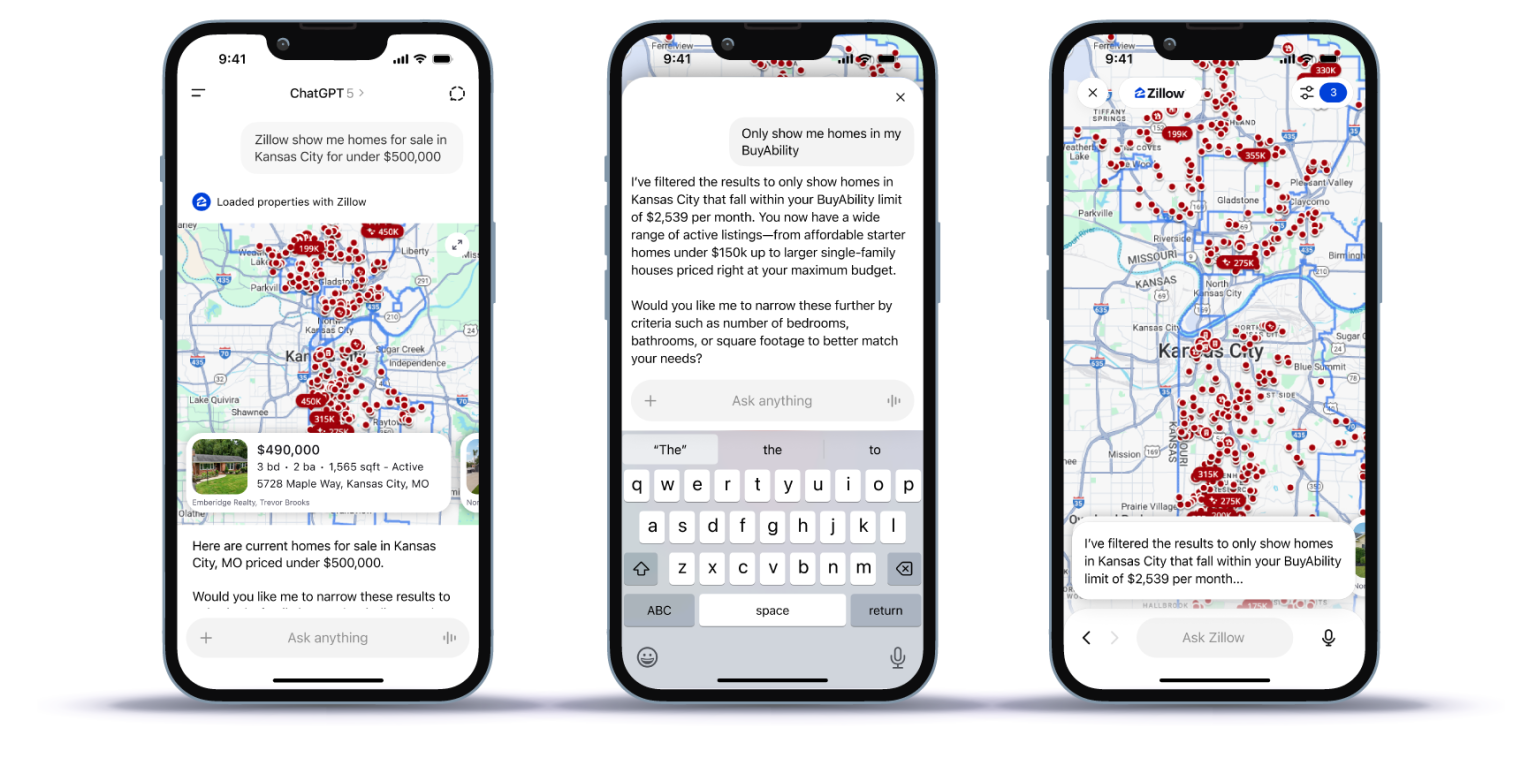Zillow’s ChatGPT Integration Sparks Industry Debate Over Data Control
In early October, Zillow made headlines by becoming the first real estate company to launch an app within ChatGPT, OpenAI’s popular AI chatbot. The integration allows users to search for properties using natural language and view listing information directly within ChatGPT, with links back to the original listings on Zillow’s platform. Zillow’s Chief Technology Officer David Beitel celebrated the move as putting the company “at the forefront of generative AI adoption” and bringing “simplicity to the home journey within ChatGPT.” However, this technological advancement quickly sparked concerns within the real estate industry about data licensing, control, and the broader implications for how property listings are shared in an AI-driven future.
The heart of the controversy centers on whether Zillow’s integration violates the terms of its IDX (Internet Data Exchange) agreements with multiple listing services (MLSs). These agreements typically allow brokers to display each other’s listings under specific conditions. Leah Ingalsbe, an executive at the Greater Springfield Board of Realtors, raised a fundamental question on LinkedIn: “What is reasonable control of the display of MLS data?” Others took stronger positions, like Texas real estate agent Danny Frank, who filed a complaint with the Houston Association of Realtors, arguing that “brokers give permission to HAR, and they do not have my permission to share that [listing data] with another third party site, unless everyone has equal access to that.” The National Association of Realtors’ (NAR) IDX policy requires all displays of IDX listings to “be under the actual and apparent control of the participant [broker],” which some industry consultants believe Zillow is violating because its license permits display of MLS data on Zillow’s own platforms, not on third-party domains like ChatGPT.
Zillow has defended its compliance measures, explaining that it went through “a painstaking process” to ensure adherence to MLS rules. The company worked closely with OpenAI to prevent IDX data from being used to train the AI model. In its FAQ, Zillow clarified that when a user enters a prompt within the app, ChatGPT relays it to Zillow, which “sends a response that is displayed in the Zillow App, but that data does not go to ChatGPT.” Regarding the “participant control” requirement, Zillow maintains that “the Zillow App was built by Zillow to be IDX-compliant and is operated by, and controlled by Zillow, just as on the Zillow website and mobile app.” Despite these assurances, industry observers remain concerned about potential vulnerabilities in the system, particularly after tests showed that the integration can generate downloadable spreadsheets of listing data when prompted with specific questions.
The ability to extract structured listing data through the ChatGPT integration has raised red flags for some industry experts. Victor Lund, a founding partner at real estate consulting firm WAV Group, believes this could enable third parties to capture listing data “and [use] it for commercial purposes” or “track and monitor listings” using external systems. When Real Estate News tested the integration by asking for listings in specific markets and price ranges, they discovered that after a series of additional prompts, the app could “pull all the data the widget actually loaded” and create a downloadable file containing data for 100 listings. This capability potentially introduces new ways for listing data to be extracted and used outside of the controlled environments that MLSs and brokers have established through their licensing agreements and policies.
Multiple listing services across the country are currently examining whether the Zillow-ChatGPT integration complies with their IDX policies, though most are hesitant to comment publicly. Some MLSs, including Stellar MLS, Georgia MLS, and NTREIS, acknowledged they were “discussing internally” or “still investigating” the matter, while Canopy MLS in North Carolina stated that “the Zillow app remains compliant with our IDX rules at this time.” Russ Cofano, co-founder of Alloy Advisors and a licensed attorney, suggested that MLSs might be keeping quiet because “We’re in a very litigious time in our industry, more than I’ve ever seen it,” adding that organizations are likely being “very cautious about taking approaches that could result in litigation.” The careful stance taken by MLSs reflects the complex legal and operational considerations at play as the industry navigates the intersection of traditional data sharing practices and emerging AI technologies.
Despite the concerns, some industry experts see Zillow’s innovation as an opportunity for the real estate industry to evolve its approach to data sharing in an AI-driven world. Cofano urged MLSs to reach out to Zillow not just to assess compliance but to learn from their innovation, stating, “If really this industry is about serving consumers, then we should be applauding Zillow… for trying to do something that exposes authorized listing data to more people in the way that we all know is coming, which is AI search and discovery.” He suggested that the industry sometimes gets too focused on data ownership issues at the expense of the primary objective: “to facilitate buyers looking at sellers’ homes for sale and doing transactions.” As AI continues to reshape how consumers search for and interact with real estate listings, the industry faces important decisions about how to balance innovation with appropriate controls over listing data, ensuring that technological advancements serve the needs of both consumers and real estate professionals while respecting the established rules and relationships that have governed the sharing of property information.















